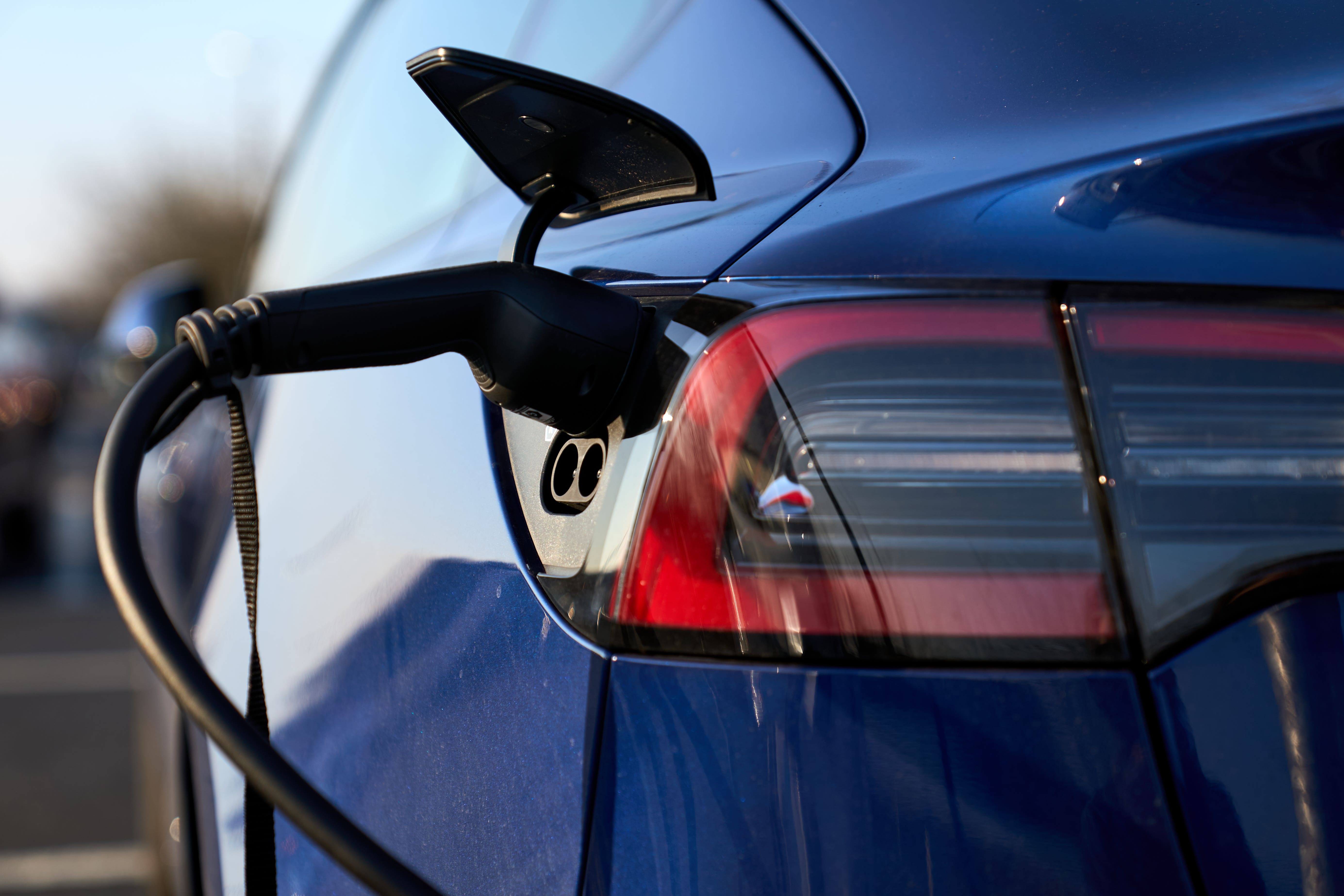Electric vehicle production continues to increase – SMMT
Total car production was said to be ‘stable’ last month, with output down by 0.3% to 68,575, equivalent to 215 fewer cars.

Your support helps us to tell the story
From reproductive rights to climate change to Big Tech, The Independent is on the ground when the story is developing. Whether it's investigating the financials of Elon Musk's pro-Trump PAC or producing our latest documentary, 'The A Word', which shines a light on the American women fighting for reproductive rights, we know how important it is to parse out the facts from the messaging.
At such a critical moment in US history, we need reporters on the ground. Your donation allows us to keep sending journalists to speak to both sides of the story.
The Independent is trusted by Americans across the entire political spectrum. And unlike many other quality news outlets, we choose not to lock Americans out of our reporting and analysis with paywalls. We believe quality journalism should be available to everyone, paid for by those who can afford it.
Your support makes all the difference.The shift to electric car production has continued, figures show.
The Society of Motor Manufacturers and Traders (SMMT) reported that combined battery electric, plug-in hybrid and hybrid electric vehicle production increased by almost 50% last month compared with a year ago.
The total of 28,329 represented more than four in every 10 cars made in January, a near-record monthly share.
The society said total car production was “stable” last month, with output down by 0.3% to 68,575, equivalent to 215 fewer cars.
Automotive manufacturing can drive long-term growth for the low carbon economy but the sector needs competitive conditions to attract investment
Supply chain shortages were still afflicting some manufacturers, it was reported.
Production for the UK increased by 5.6% while exports fell by 1.5%, largely due to the suspension of shipments to Russia.
More than four out of five of all cars built last month were destined for overseas markets, with over half of these for the EU.
Mike Hawes, SMMT chief executive, said: “Automotive manufacturing can drive long-term growth for the low carbon economy but the sector needs competitive conditions to attract investment.
“Recent global developments, however, suggest increasing protectionism which, if not challenged or mitigated, could put the UK at a disadvantage.
“To deliver a wholesale industrial transformation we need a competitive framework and a pitch that promotes advanced vehicle manufacturing internationally.
At present the UK is proving a less attractive proposition for new vehicle manufacturing facilities due to relatively high labour and energy costs, and access to raw materials and chemicals
“We now look to the forthcoming Budget for the necessary measures that will enable the automotive sector to deliver its undoubted potential.”
The latest independent outlook anticipates production increasing by 9% to 842,200 cars this year, driven by growth in electrified vehicles, said the SMMT.
By 2025 car and light van production is predicted to be more than one million, it added.
Richard Peberdy, of KPMG, said: “An easing of supply shortages and continued demand for new cars, despite the cost-of-living squeeze, is keeping the market moving, but medium to longer-term questions remain unanswered for the industry, despite investing over £10 billion in electric vehicle capability since 2011.
“At present the UK is proving a less attractive proposition for new vehicle manufacturing facilities due to relatively high labour and energy costs, and access to raw materials and chemicals.
“Whilst the UK is a global leader in high value skills and research, in a globally competitive environment the Government and the local industry need to do more to show that it can be a viable manufacturing base for battery and electric vehicle manufacturing at scale.”
A Government spokesperson said: “This is great news for our auto industry, and shows how increasing EV and hybrid production will keep supporting jobs and growth across the country.
“More and more drivers, at home and abroad, are switching to affordable and clean vehicles and we are backing UK manufacturers to lead the way on technologies of the future.”